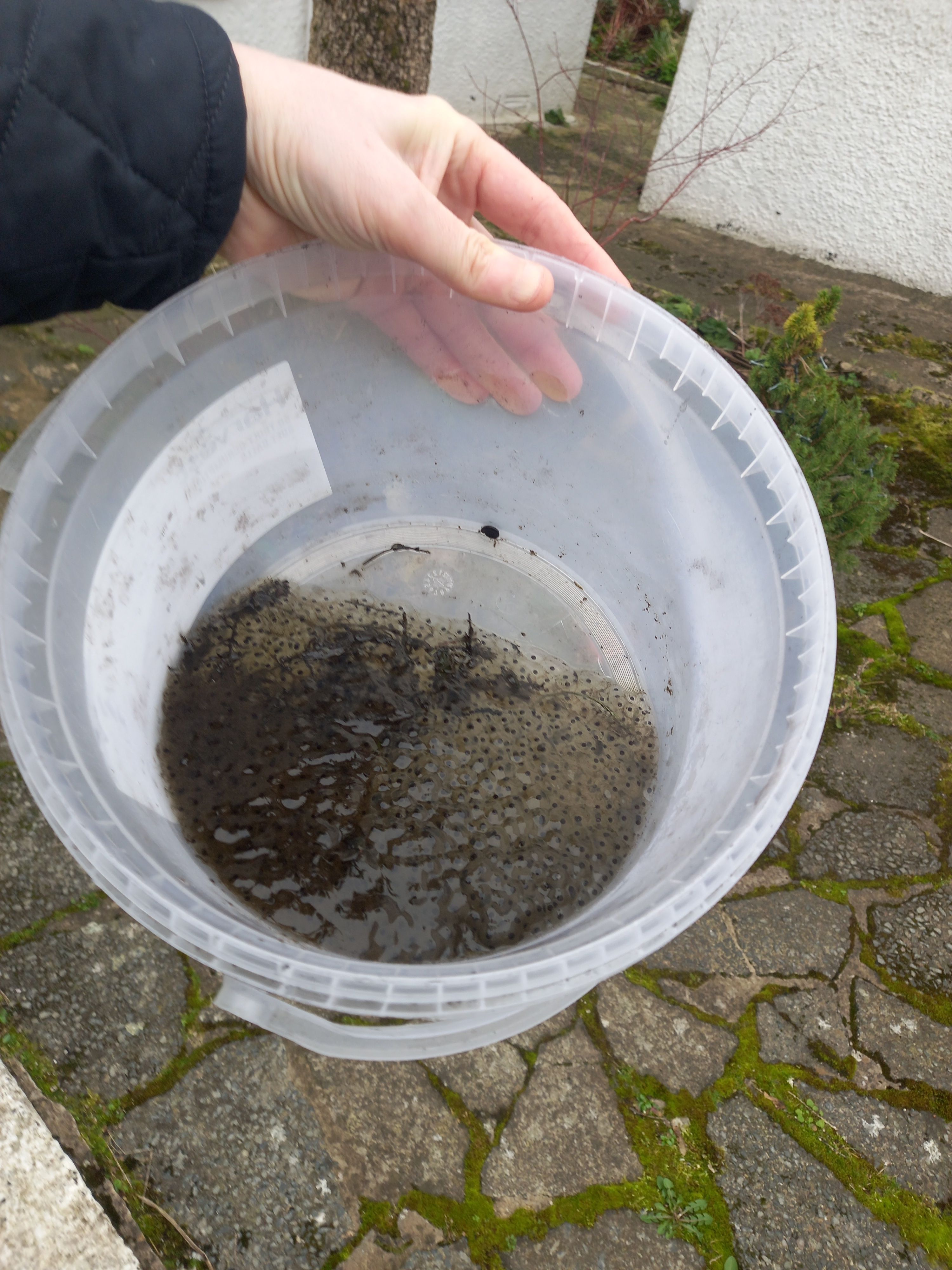WHO says you have to grow up? Your childhood is packed with fun and the excitement of learning new things, so why leave it behind?
That’s exactly what Dúlra thinks every spring when he scoops up handfuls of frogspawn from the Belfast Hills and takes it back to the city. It’s something he remembers fondly from primary school, when spawn was put in a tank in the class. To see miniature frogs emerge from black dots in a matter of weeks is truly miraculous.
Last month, Dúlra scooped up a couple of handfuls of spawn into a plastic bag at the top of Divis. He dandered on across the hilltop and later stopped for a coffee in the café – something unimaginable when Dúlra first walked this isolated mountain.
But when you’re carrying what looks like water in a plastic bag, you’re going to get asked about it. And so a half-embarrassed Dúlra had to tell quite a few people in the café that there was frogspawn inside.
He expected a few odd looks – maybe one or two suggesting that it was time he grew up. But the reaction was universal – envy! ‘Where did you get it? Can I get some?’ they said.
Who wouldn’t want to watch that mini-miracle take place in their own garden? And while removing creatures from their natural home is almost always wrong, when it comes to frogs, you could in fact be helping them.
Frogs might be a lot less common than in the past – that’s due to people wanting to dry the land for farming or to live on. But as long as there’s a damp corner of a field, frogs will still thrive.
And that’s because a mother frog produces 2,000 offspring. Maybe because there are so many, she doesn’t seem to give their home much thought. Wherever there is a splash of water she drops off those 2,000 wee darlings. The ones Dúlra picked up on Divis were actually in a puddle on the path used by the hundreds of visitors every day. They had no chance of survival – once the spring sun arrives, the water will evaporate and the spawn will shrivel and die. So Dúlra was actually saving their lives.
In the wild, it’s said that just one in 50 tadpoles will survive – that’s 40 out of that 2,000. In their new home – an old sink in Dúlra’s garden – 100 per cent of them will emerge into the grass. Of course, their struggle for life will only begin then – and as they discover the local gardens, the lawnmower’s blade will probably be the biggest danger to them rather than a heron's beak.
In the wild, frogs, and indeed tadpoles, are at the bottom of the food chain, their predators are too numerous to mention. A few years back Dúlra was in the kitchen when he spotted water splashing from the sink in his garden. He bolted out to find a pair of blackbirds spearing the tadpoles! Now he has mesh across it to keep hungry beaks out.
Each day, Dúlra is like the schoolkid of old. He can’t wait to get out to see his new charges. He’s no idea what they eat, but they grow at an incredible rate. It’ll be another month at least before they grow legs and climb up on to the rocks and out of the sink to discover their new world. We can't begin to imagine what adventures await them.
This has been the third year Dúlra has raised frogs, but he has yet to attract an adult breeding mother. It takes them a couple of years for them to reach adulthood, then they somehow return to the place of their birth to breed.
Next February, Dúlra hopes he won’t have to venture up to freezing Divis with a plastic bag, because with a bit of luck he'll wake up one morning to find the sink already full of spawn.
•Chiffchaffs have already arrived back from their migration in Africa, according to several readers. The tiny bird, named after its loud call, loves wooded areas and is always the first to herald spring – or at least the end of winter. So its call is always welcome!
•If you’ve seen or photographed anything interesting, you can text Dúlra on 07801 414804.






